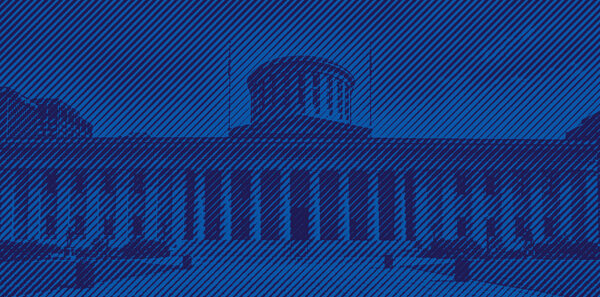Below is our Chief Lobbyist Gary Daniels' opponent testimony on House Bill 680. This was delivered to the House State & Local Government Committee on June 3, 2020.
To Chairman Wiggam, Vice Chair Stephens, Ranking Member Kelly, and members of the House State & Local Government Committee, thank you for this opportunity to present opponent testimony on House Bill 680.
House Bill 680 is advertised as creating an alternative plan to potentially be used when public health emergencies threaten the ability of Ohioans to vote. The truth is HB 680 makes it more difficult for your constituents to vote during both public health crises and in non-crisis, standard times.
As you all know, Ohio and the rest of the nation remain in the grips of a pandemic with a) increasing infection and deaths, b) no vaccine, c) wholly inadequate testing, and d) asymptomatic spread. Like pandemics before it, the effects of COVID-19 may rise and fall in waves over many months or years, including November 2020.
None of us know what exactly the future brings with regard to COVID-19 or similar public health emergencies. But, it makes absolute sense to be as prepared as possible. It is what Ohioans expect of their elected officials.
With this year's primary election, we witnessed what happens when election changes made due to COVID-19 suffer botched implementation, some of which would have been avoided or minimized but for the very short window of time created by the legislature between March 17 and April 28.
The ACLU of Ohio has numerous concerns about HB 680 but I will use this opportunity to briefly discuss two specific ones:
First, HB 680 shortens by seven days the time for Ohioans to request/receive their absentee ballots in for an election. This applies to
all future elections, not just those when the HB 680 alternative plan is put into place. Whether during a crisis or not, this is a horrible idea.
We all saw with this primary how time can be of the essence when elections are impacted by forces outside our control and voters are understandably confused or under-informed. It was discussed during the sponsor hearing for this bill how some Ohioans still believe the primary election will occur on June 2nd.
Second, HB 680 explicitly forbids the Secretary of State from sending unsolicited applications for absentee ballot requests to Ohio voters. Again, this inflexible measure applies to
all future elections, not just those when the HB 680 alternative plan is implemented. This makes zero sense if the goal is to facilitate voting. It makes perfect sense if one wants less people to vote rather than more.
The ACLU of Ohio continues to advocate for the State of Ohio to send postage paid absentee ballot applications and/or ballots themselves to Ohio voters for all elections. Doing so expands voting and makes moot both the specific concerns we mention with HB 680.
Otherwise and more generally, the alternative plan created by HB 680 and applicable to public health emergencies does not facilitate voting by your constituents. The plan is one-size-fits-all. It is not mindful of how numerous variables present in crisis situations may and will impact different elections in different ways.
Yes, Ohio should have a comprehensive, alternative plan(s) for when elections may be impacted by crisis. This is not that plan for multiple reasons.
The ACLU of Ohio opposes House Bill 680 because we believe it negatively affects the ability of people to vote at precisely the times when flexibility may be needed and when facilitating voting should be the goal. As always, we are available and interested in working with others, including members of this committee and all legislators, to craft effective solutions.
But, the ACLU of Ohio also urges rejection of HB 680 for all these reasons and more.


